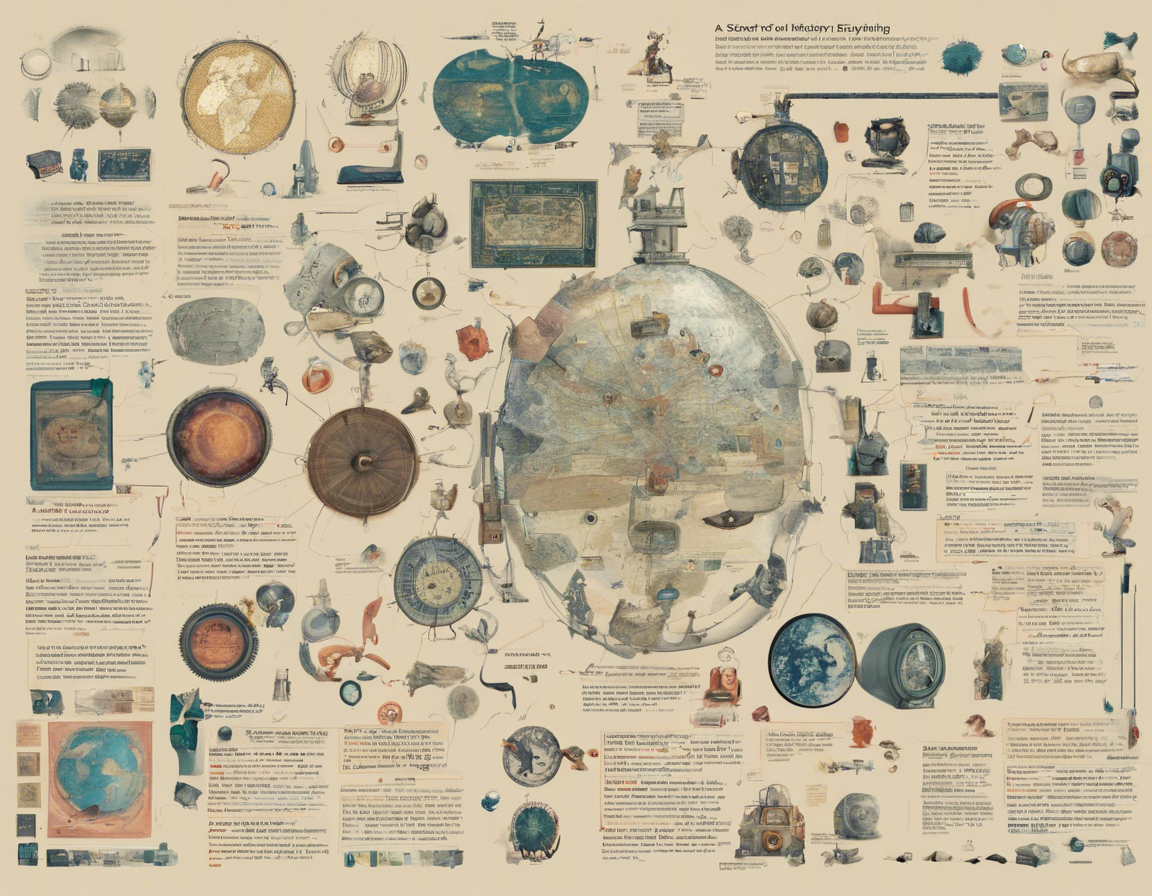Have you ever stopped to consider the sheer magnitude of everything around you? From the stars in the sky to the grains of sand beneath your feet, the world is full of wonder and history. The history of everything is a vast and fascinating topic that spans billions of years and encompasses countless events, people, and discoveries. In this article, we will delve into the history of everything to explore the origins of the universe, the evolution of life on Earth, the rise and fall of civilizations, and the incredible innovations that have shaped the world we live in today.
Origins of the Universe
The history of everything begins with the Big Bang, a colossal explosion that occurred approximately 13.8 billion years ago. This event marked the birth of the universe and set into motion a series of events that would ultimately lead to the formation of galaxies, stars, planets, and even life itself. Over the course of billions of years, the universe expanded and cooled, giving rise to the fundamental forces and particles that govern the cosmos.
Evolution of Life on Earth
One of the most remarkable chapters in the history of everything is the evolution of life on Earth. Around 3.8 billion years ago, the first single-celled organisms appeared in the primordial oceans, paving the way for the development of more complex life forms over time. Through the process of natural selection, organisms adapted to their environments, leading to the diversity of species we see on Earth today. From dinosaurs to mammals, the story of life on Earth is a testament to the power of evolution.
Rise and Fall of Civilizations
Civilizations have risen and fallen throughout human history, leaving behind a rich tapestry of cultures, technologies, and achievements. From the ancient civilizations of Mesopotamia and Egypt to the empires of Rome and China, human societies have flourished and declined for millennia. The history of everything is replete with stories of conquest and exploration, innovation and stagnation, triumph and tragedy. The ruins of ancient cities and the artifacts of bygone eras bear witness to the ebb and flow of human civilization.
Innovations that Shaped the World
The history of everything is also a story of innovation and discovery. From the invention of the wheel to the development of the internet, human ingenuity has transformed the world in countless ways. The agricultural revolution revolutionized how societies produced and consumed food, while the industrial revolution ushered in an era of mechanization and urbanization. More recently, the digital revolution has connected people across the globe and reshaped the way we live, work, and communicate.
Frequently Asked Questions (FAQs)
- What is the oldest thing in the universe?
-
The oldest known object in the universe is the Methuselah star, estimated to be about 14.5 billion years old.
-
How did life originate on Earth?
-
The exact origins of life on Earth are still a topic of scientific debate, but many researchers believe that it may have begun in the primordial oceans through a combination of chemical reactions and natural processes.
-
What caused the fall of the Roman Empire?
-
The fall of the Roman Empire was a complex event influenced by a combination of political, economic, social, and military factors, including invasions by barbarian tribes, political instability, and economic decline.
-
What are some major technological advancements in history?
-
Some major technological advancements in history include the invention of the printing press, the steam engine, the telephone, the airplane, the automobile, and the computer.
-
How has climate change impacted the history of the Earth?
-
Climate change has played a significant role in shaping the history of the Earth, influencing everything from the distribution of species to the rise and fall of civilizations. In recent times, human-induced climate change has emerged as a major global challenge with far-reaching implications.
-
What are some key events in the history of science?
-
Some key events in the history of science include the discovery of the laws of motion by Isaac Newton, the theory of evolution by Charles Darwin, the development of the theory of relativity by Albert Einstein, and the mapping of the human genome.
-
How has communication evolved over time?
-
Communication has evolved dramatically over time, from the use of cave paintings and hieroglyphics to the invention of writing systems, the printing press, the telegraph, the telephone, and the internet. Each new technology has revolutionized how people share information and connect with one another.
-
What role have women played in shaping history?
- Women have played a crucial but often overlooked role in shaping history, contributing to fields such as science, art, literature, politics, and activism. From Marie Curie to Rosa Parks, women have made significant contributions to society despite facing numerous challenges and barriers.
Conclusion
The history of everything is a multifaceted tapestry woven from the threads of time, space, and human ingenuity. From the cosmic explosion that birthed the universe to the rise and fall of civilizations on Earth, each chapter in this grand narrative offers insights into our collective past and hints at the possibilities of the future. By studying the history of everything, we gain a deeper appreciation for the world around us and our place within it, inspiring us to seek out new horizons and strive for greater understanding and knowledge.



